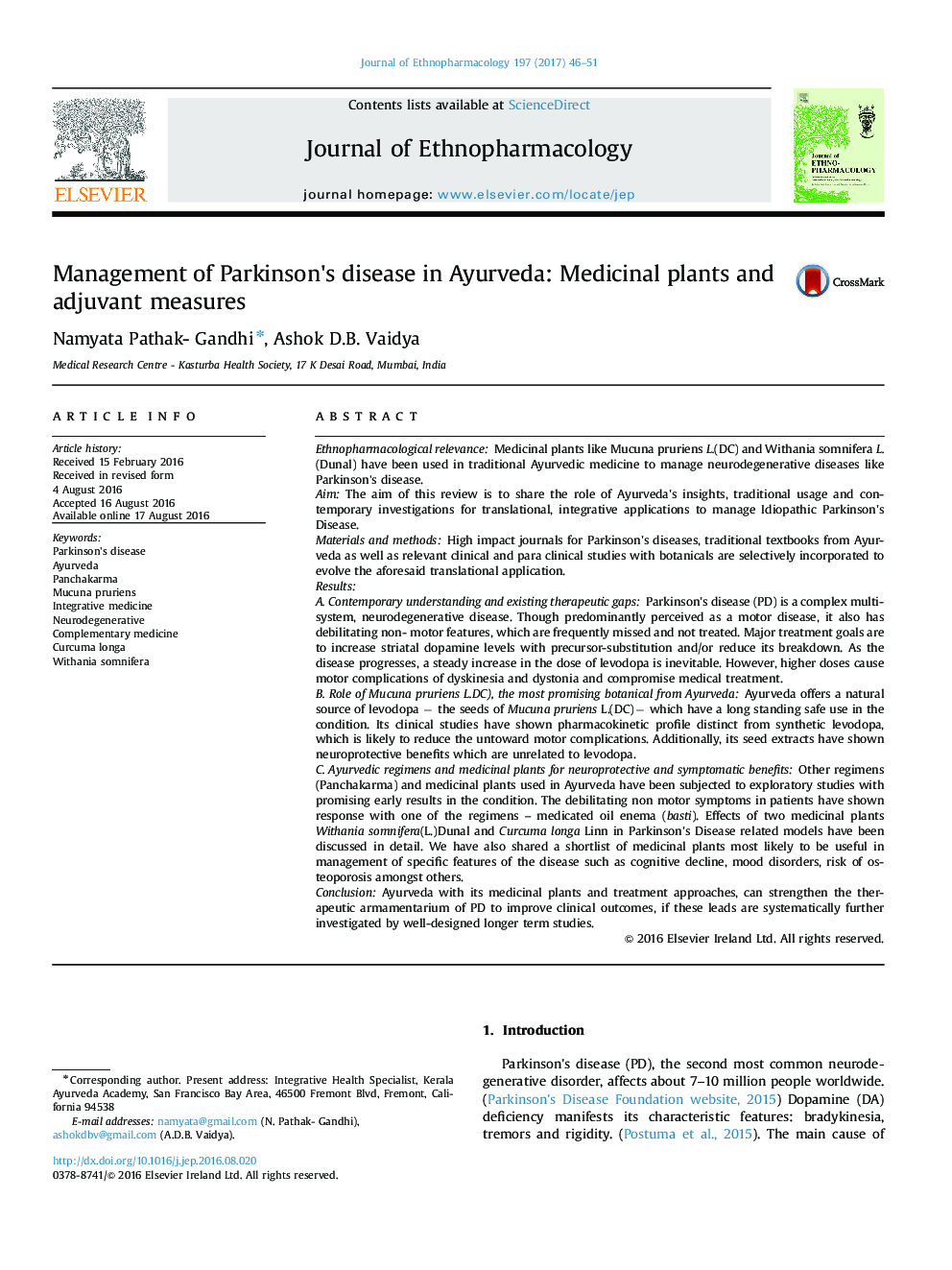| کد مقاله | کد نشریه | سال انتشار | مقاله انگلیسی | نسخه تمام متن |
|---|---|---|---|---|
| 5556410 | 1560365 | 2017 | 6 صفحه PDF | دانلود رایگان |
Ethnopharmacological relevanceMedicinal plants like Mucuna pruriens L.(DC) and Withania somnifera L.(Dunal) have been used in traditional Ayurvedic medicine to manage neurodegenerative diseases like Parkinson's disease.AimThe aim of this review is to share the role of Ayurveda's insights, traditional usage and contemporary investigations for translational, integrative applications to manage Idiopathic Parkinson's Disease.Materials and methodsHigh impact journals for Parkinson's diseases, traditional textbooks from Ayurveda as well as relevant clinical and para clinical studies with botanicals are selectively incorporated to evolve the aforesaid translational application.Results.A. Contemporary understanding and existing therapeutic gapsParkinson's disease (PD) is a complex multi-system, neurodegenerative disease. Though predominantly perceived as a motor disease, it also has debilitating non- motor features, which are frequently missed and not treated. Major treatment goals are to increase striatal dopamine levels with precursor-substitution and/or reduce its breakdown. As the disease progresses, a steady increase in the dose of levodopa is inevitable. However, higher doses cause motor complications of dyskinesia and dystonia and compromise medical treatment.B. Role of Mucuna pruriens L.DC), the most promising botanical from AyurvedaAyurveda offers a natural source of levodopa â the seeds of Mucuna pruriens L.(DC)â which have a long standing safe use in the condition. Its clinical studies have shown pharmacokinetic profile distinct from synthetic levodopa, which is likely to reduce the untoward motor complications. Additionally, its seed extracts have shown neuroprotective benefits which are unrelated to levodopa.C. Ayurvedic regimens and medicinal plants for neuroprotective and symptomatic benefitsOther regimens (Panchakarma) and medicinal plants used in Ayurveda have been subjected to exploratory studies with promising early results in the condition. The debilitating non motor symptoms in patients have shown response with one of the regimens - medicated oil enema (basti). Effects of two medicinal plants Withania somnifera(L.)Dunal and Curcuma longa Linn in Parkinson's Disease related models have been discussed in detail. We have also shared a shortlist of medicinal plants most likely to be useful in management of specific features of the disease such as cognitive decline, mood disorders, risk of osteoporosis amongst others.ConclusionAyurveda with its medicinal plants and treatment approaches, can strengthen the therapeutic armamentarium of PD to improve clinical outcomes, if these leads are systematically further investigated by well-designed longer term studies.
448
Journal: Journal of Ethnopharmacology - Volume 197, 2 February 2017, Pages 46-51
